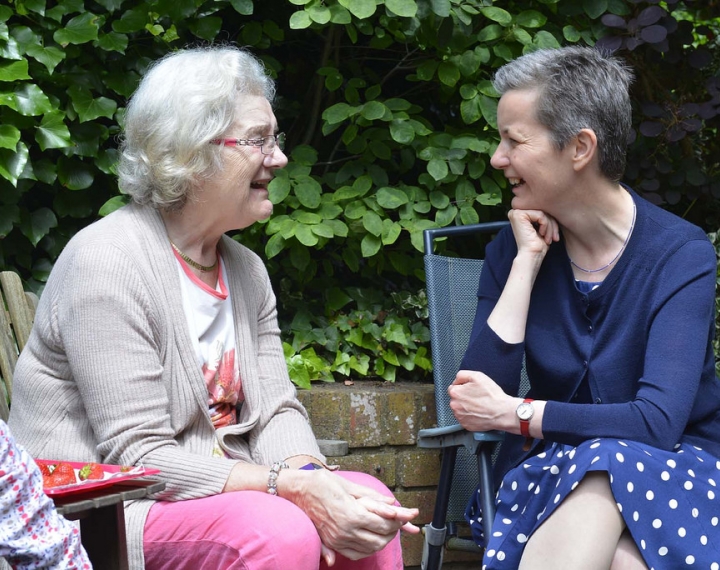The Best Methods Of Relaxation For Your Residents
 In care home environments, stress can be a common problem. For instance, for some residents, being surrounded by others is enjoyable, but for others it can be a source of stress. While for some, the source of their stress is due to a health condition, such as Alzheimer's Disease, that makes it difficult for them to express what they want or need, causing frustration which can lead to stress.
In care home environments, stress can be a common problem. For instance, for some residents, being surrounded by others is enjoyable, but for others it can be a source of stress. While for some, the source of their stress is due to a health condition, such as Alzheimer's Disease, that makes it difficult for them to express what they want or need, causing frustration which can lead to stress.
Because, as various studies have shown, for the majority of people stress has both a physical and psychological impact. Some of the physical ways that stress impacts the body include by causing headaches and insomnia, and also, by leading to a loss of appetite. The most common psychological impacts of stress include feeling anxious, feeling depressed, and can even lead to a loss of cognitive function, meaning that residents who are stressed may struggle to pay attention, act confused, and may also become more irritable.
Whatever the cause of a resident’s stress, it’s important to deal with the problem effectively. With that in mind, below are a list of methods for helping your residents to relax and de-stress.
Encourage them to talk about the issue
A care home resident who is suffering from stress will need lots of help and support from their care team, and also from their friends and family. It’s been noted in various studies that a lot of people - both young and old - who suffer from stress, can find talking about the cause of the problem difficult. However, if they’re able to explain why they are feeling stressed, then it’s important that they do so. As it can be incredibly beneficial and can help to prevent stress from becoming a problem. Of course, if a resident is suffering from a condition like dementia, then this might not always be possible. However, where it is possible to discuss the root cause of stress, it’s important to do so.
Massage
For helping to alleviate stress, massage is one of the best methods. The great thing about massage is that it is incredibly soothing and calming, and not only impacts the body, helping to relieve any tension, but also the mind. As well as helping to relieve stress, for care home residents massage can help to manage the symptoms of various other ailments, such as arthritis, for instance. For residents living with dementia, massage can be a great way to help relieve stress, among other behaviours, such as aggression and agitation, commonly seen in dementia sufferers.
Gentle exercise
It’s no secret that exercise helps to alleviate stress, but what a lot of people don’t realise is that it can be highly beneficial to people with all levels of mobility. Studies have shown that taking part in gentle exercise on a regular basis can be incredibly effective for helping to alleviate and manage stress in care home residents. Whether it’s going for a calming swim or taking a stroll outside, it doesn’t matter - all forms of exercise can be effective. However, meditation-based exercise, such as slow-paced yoga and pilates, that allows gentle stretching and body strengthening while focusing on deep breathing, has been shown to be one of the most effective methods of stress-relieving exercise.
Calming music
Research has shown that for helping to ease anxiety and stress in care home residents, calming music can be highly effective. This is especially true for residents who suffer from an illness that impairs their cognitive function. Studies have shown that listening to calming music could help to reduce agitation in dementia sufferers, with the benefits being seen for up to a few hours after.
Knowing how to reduce stress in care home residents is important, especially for residents suffering from a certain illness, such as Alzheimer's Disease.




